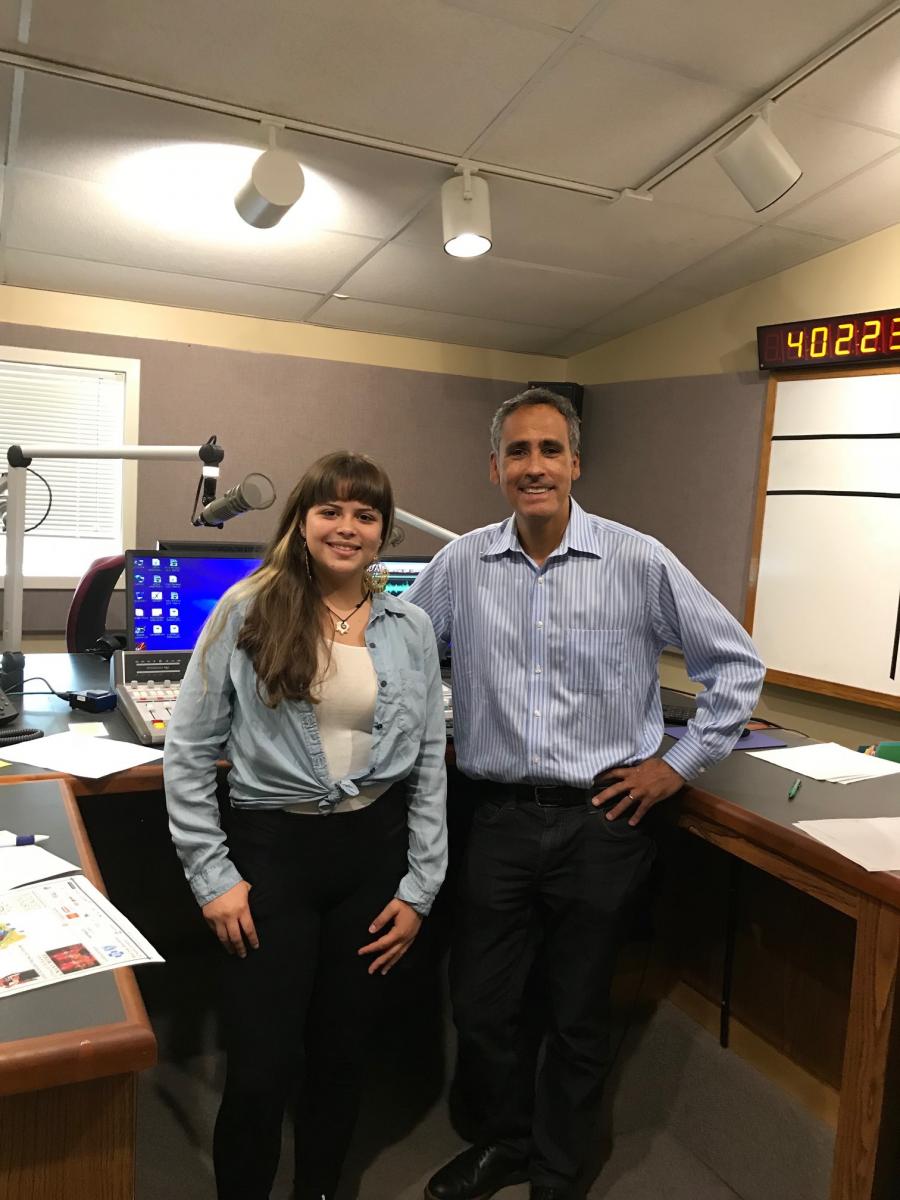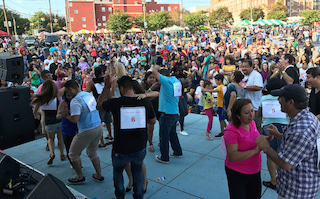Fiesta 2018 brings Latino culture—dance, art, food and games—center stage this weekend in the Triad. And there will be plenty of live music as well, including Argentine tango, Cuban salsa, and Mexican mariachi.
WFDD's David Ford recently caught up with 14-year-old singing sensation Josie Borges. Borges discovered this music just three years ago, after seeing it offered at her school in Las Vegas. She wanted to learn trumpet, loved to sing, and with mariachi, she found she could do both.

In August, Borges attended a week-long mariachi workshop just outside of Los Angeles run by one of this genre's finest: four-time Grammy nominee José Hernández. Borges was one of 150 young musicians (up to age 30) from across the Western United States.
On Saturday, Borges will join Mariachi Los Galleros from Raleigh, live in concert during Fiesta 2018 in downtown Winston-Salem.
Interview Highlights
On the growing popularity of mariachi music among young people:
It's funny but most of the people that take an interest in this music are in it because their parents find it a part of them. A lot of the parents tell their kids, "You know, this music is a part of our culture. This music is our tradition and we need to stick to it." Because I feel like as people [if] we lose our tradition—we lose that in our lives—we just kind of are stuck in what's happening now like with all of the new pop music that's coming out. It's not so much of something that the parents can relate to.
On having a strong musical connection with family members:
My dad is actually from Yucatan, and he didn't really listen to mariachi music a whole lot either, but I know my grandma did. And a lot of my tias [aunts] used to sing and be in a mariachi or they used to sing and play with mariachis. And I ask them for help with my pronunciations and my tones for the different words that I'm supposed to sing. And then they start telling me all these backstories on how they used to sing in groups when they were younger and how they used to go different places and just relax with some of the musicians that they used to hang out with. And it's really cool to just get that full experience of what they used to do, and it brings conversation and it brings connections in the family.
On the feeling of singing a beautiful ballad for an audience:
When I learn the lyrics, my mom always helps me print out the lyrics in English as well, so I know what I'm talking about, and I know what they want to express through their music. When I sing a song like “Tu Solo Tu,” I know that there's a lot of pain—like there's supposed to be pain in that song. So, just putting the feeling in when I say a certain word I know that it makes the music. It makes the music what it's supposed to be. It makes the music what gives a message as well. And when it starts talking about like, “You caused me so much pain in my heart,” I know that ... this is like the part where I'm supposed to touch people and make them get those, you know, goose bumps that they want to feel when they're listening to music. And it's just it's one of my favorite things about singing songs like that. It's just something that's going to touch people and make people go, “Oh my goodness, like I know what she's talking about, I know what she's feeling.”

Fiesta 2018, with food vendors, piñatas, interactive art and more, begins Saturday morning at 10:00 a.m. with a Zumbathon Fitness workout on the Indie Stage at 4th Street and Poplar in Winston-Salem. The day-long festival continues multiple stages downtown until 7:00 p.m.
New to Fiesta this year is the Associated Artists' Community Canvas inside the Milton Rhodes Center. There visitors will be encouraged to help paint an enormous canvas, expressing personal feelings about their community through art. Fiesta will also be partnering with the Southeastern Center for Contemporary Art (SECCA) on the 34,000 Pillows Project. Participants can use on-site sewing machines or simply stuff pillows which will eventually be sent to individuals currently living in detention centers here in the U.S.
300x250 Ad
300x250 Ad
